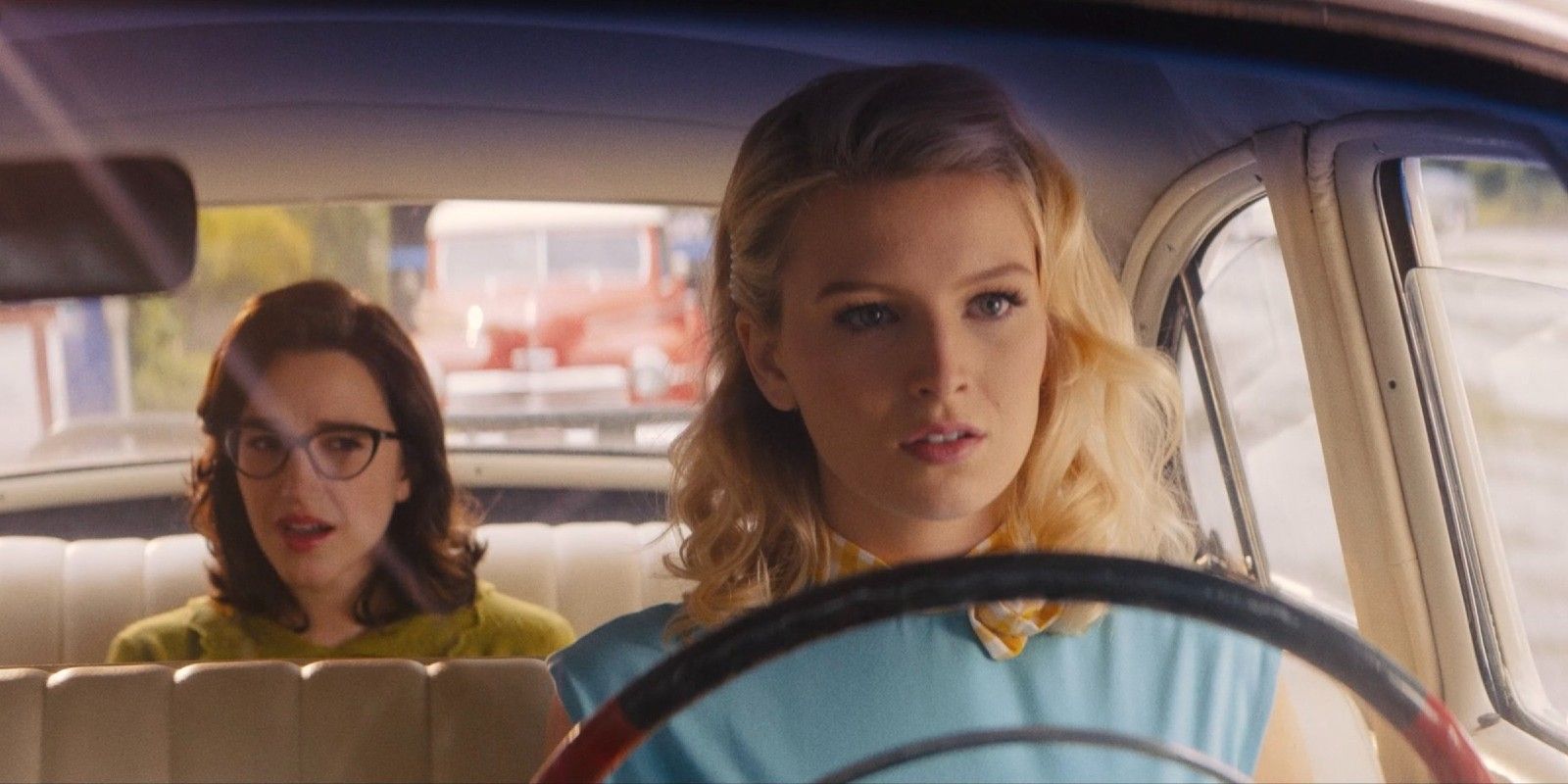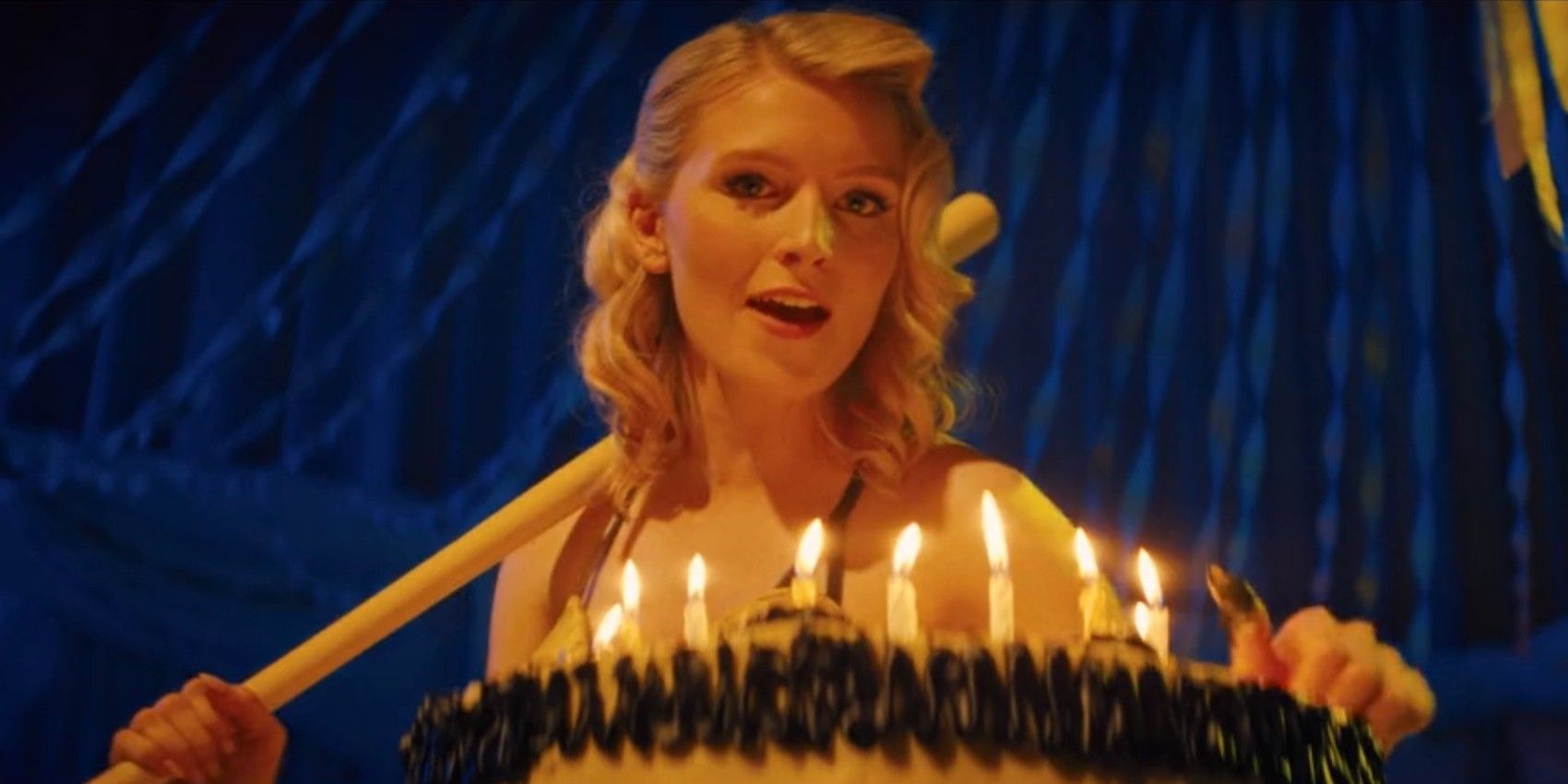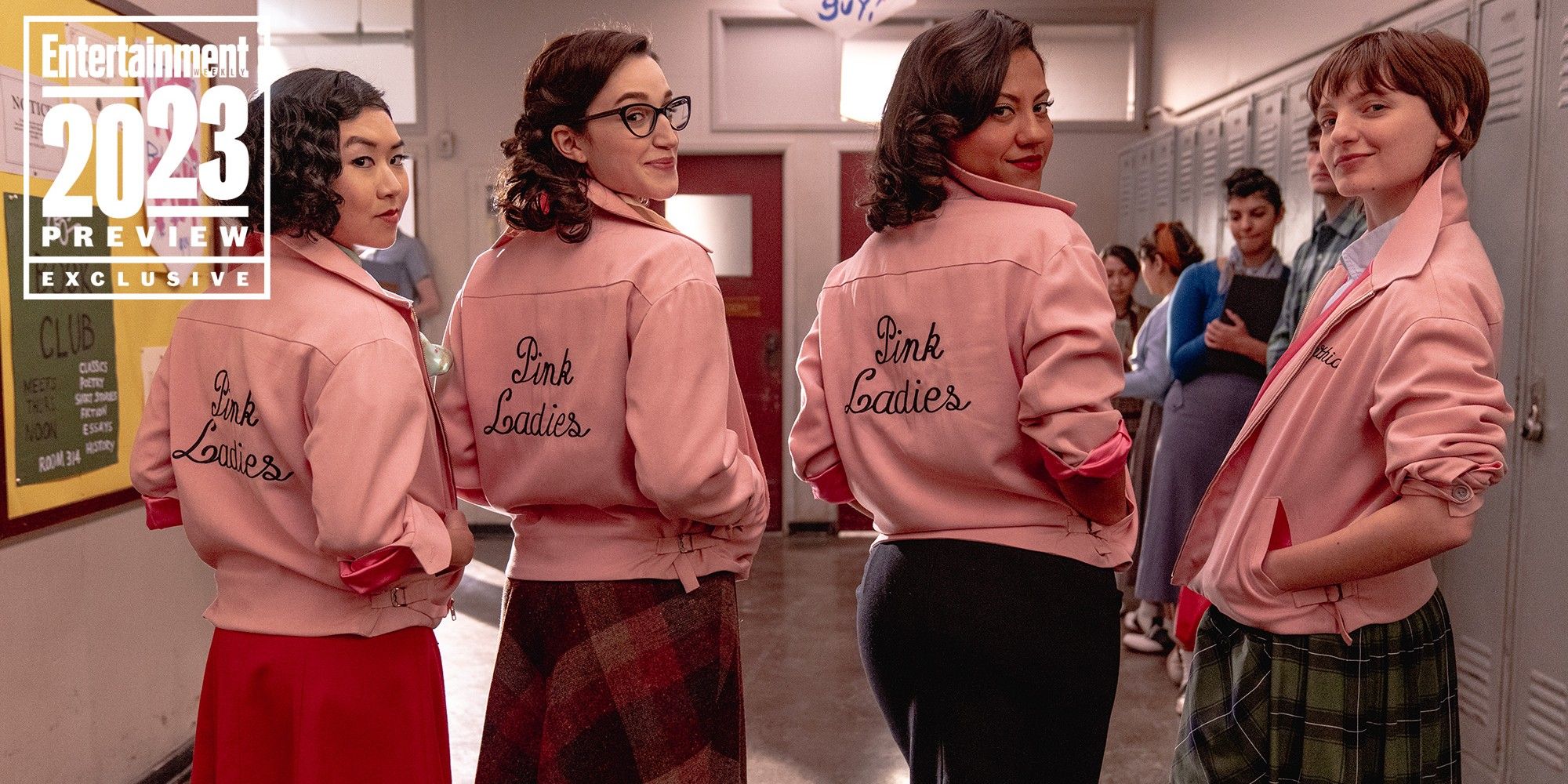Grease: Rise of the Pink Ladies shows a different side of Rydell High’s students, and not just the Pink Ladies. A prequel to the 1978 classic movie musical Grease, Rise of the Pink Ladies shows the origin story of one of Grease’s main greaser groups, the Pink Ladies, who fight for acceptance for all at Rydell. As both an homage to the original Grease and an update, Grease: Rise of the Pink Ladies features all-new musical numbers and iconic choreography that is sure to appeal to Grease fans and newcomers alike.
A major component of what makes Grease: Rise of the Pink Ladies so special is its ensemble cast of memorable and complex characters. Perhaps the most complicated character in Rise of the Pink Ladies is Susan, who is skillfully brought to life by Madison Thompson. Although Susan begins Rise of the Pink Ladies as one of the Pink Ladies’ main antagonists, it is eventually revealed that there is more to Susan than meets the eye as the series progresses.
Screen Rant spoke with Madison Thompson about what it was like working on Grease: Rise of the Pink Ladies, how she brought Susan to life, and how it feels to be part of the Grease franchise.
Madison Thompson on Grease: Rise Of The Pink Ladies
Screen Rant: I was super excited to get the opportunity to speak with you because I’ve always been such a big fan of Grease. Were you a fan of Grease before appearing on the show?
Madison Thompson: How can you not be a fan of Grease, right? I grew up listening to the soundtrack. I feel like that soundtrack was a really big part of my upbringing. My dad, growing up, would wake me up for school on Friday mornings with a “Happy Friday” playlist, and Grease was all over that playlist, so I feel like my happiest moments of waking up on Fridays were characterized by the sounds of Grease. And so I always had such a positive association with it growing up.
My parents are huge Grease fans…we had a ton of, like, the Grease original vinyl albums that my dad had when he was younger. [Then] I grew up being a total theater kid, and Grease originated as a musical on Broadway, so I was always begging my high school to do Grease. We never did it, unfortunately […] but I’m glad I was able to join the Grease universe in a different type of way.
Did that background love of Grease and your theater experience affect your approach to the character of Susan? And did you have any inspiration for your characterization of her?
Madison Thompson: Absolutely! So, when it came to going in for Grease, there were many, many, many audition rounds, so I really had to rely on my upbringing on doing multiple rounds of callbacks for musical theater shows to mentally just get through the challenge that was the audition process for the show. And don’t even get me started about, y’know, 7 months in Canada and what it’s like to shoot a musical television show. [T]here [are] just so many added layers – shooting a TV show is a challenge in itself, an incredibly privileged challenge, but it’s a lot of hard work with a really big team, and then you add in an entire cast recording, recording music numbers and rehearsals. Putting together these musical numbers we definitely had our challenge in front of us, but that’s what made it so fun.
And when it came to creating Susan, I found inspiration a lot from the character of Betty Draper from Mad Men, which Susan is, in her clothing and her hair and her makeup, inspired by a lot. I kind of say that Susan is Betty Draper with hope. […] I think she has the opportunity to sort of take charge of her life more than Betty did, but there’s a lot of similarities there in the way that they hold themselves, present themselves, and navigate society, so that was a big one.
I was also inspired by, and this is a Grease fun fact, the original actress Sandra Dee. [I]n the original Grease movie, Rizzo makes fun of Sandy for being similar to Sandra Dee, and Sandra Dee was an actual really famous actress at the time of the 50s. [T]here are a lot of similarities between Sandra Dee and Susan. Other TV shows, actual actresses of that time, obviously the original movie, and the Grease spirit and energy were a big inspiration as well. It was a lot of things, an amalgamation of experience from high school, music theater, my TV and film experience working on Ozark, learning about what it is really like to shoot a giant TV show, and also all these characters from movies and the original movie.
Were you always aware of this nuanced aspect of Susan’s character from the jump, and was it difficult for you to play a character like her who has both antagonistic and sympathetic qualities to her personality?
Madison Thompson: Great question! When I first came in for Susan, obviously I didn’t know a lot about her character, and on page she really did read like a Regina-George-mean-girl. When it comes to playing an antagonist, I think it is so important as an actor that first of all you are sympathetic to your own character, but I wanted everything that came out of Susan’s mouth, no matter how mean it was, to be rooted in truth. I don’t believe that she’s a mean person, I believe that she is a teenage girl that makes mistakes and says things that she probably shouldn’t.
My hope was that if people were to ever rewatch the season or rewatch scenes, once they know the true extent of what happened to Susan and who she is and her upbringing, that they would see all of the first five episodes, where Susan kind of seems like a mean girl, in a whole different light. In the opening scene when you meet Susan she says to Jane, “I am so happy for you,” and I think a lot of people interpret that as her being sarcastic, but I genuinely said the line with the utmost truth and honesty, because Susan is happy for her! She’s just upset that her boyfriend that she loved […] who broke up with her has moved on so quickly. It’s really nuanced!
And to go back to your question of, “Was that a challenge?”, I think it was the best part of the job. [O]ur incredible writers’ room gave me this gift of this character that you kind of love to hate, but at the same time are sympathetic for because there’s so much going on. […] I was really appreciative that Susan was more than just a one dimensional character. Having that softer side made her a real person to me, and I ended up being Susan’s biggest advocate! So any time anyone’s like, “we don’t like Susan!”, I’m like, “No, wait! There’s more to her, you just haven’t seen it yet!”
In the original Grease movie, a lot of the side characters who aren’t the Pink Ladies or the T-Birds don’t really get as prominently featured as they get to be in this show. What do you think taking a closer, more nuanced look at characters like Susan or Buddy adds to the Grease universe?
Madison Thompson: Yeah, it’s so interesting, because the first couple episodes of the show are really setting up our Pink Ladies, who, may I say, are just brilliant performers. But where I feel like our show really hits its stride is when it settles into its truly ensemble nature, which is such an homage to the original Grease. [E]ven down to the characters in the background, you will see Susan and Buddy or the Pinks are just in the background of scenes, which makes it so much more realistic of a high school show, because that’s how high school is! [I]t breathes such an interesting life into it and kind of rounds out the world of Rydell.
I think Buddy and Susan are a great example of that. They’re important characters in the first couple episodes because they’re interacting closely with the Pink Ladies, but as our show really takes off, all of these characters get a chance to shine, and […] you find out that these stock characters that you think you knew in the pilot are a lot different that you thought they were, and that makes for really, really captivating television.
What do you hope viewers will take away from Susan’s story in Rise of the Pink Ladies, especially after episode 6?
Madison Thompson: I really hope that people are giving Susan another chance. As I said earlier, I think that in the first couple of episodes, she goes from a villain to an antagonist. At first, you think she’s just a one dimensional villain that has it out for the Pink Ladies, and you’re not sure why. [Episode 6] is only the start of unraveling what happened to Susan that summer and why she is so infatuated with Buddy, and no matter how many times he chooses other people over her, like she wins him an entire election and I don’t think he even said ‘thank you!’ …and her relationship with her mom is so complex that I hope that people realize that there’s a lot more to Susan than meets the eye.
I was wondering if you can give us any clues as to how Susan’s new desire to rebel while working within the system might play out throughout the rest of the season?
Madison Thompson: Absolutely! Well, I don’t want to spoil too much, but what I can say is that something that is a really big part of that episode is you start to kind of learn about the sort of eating disorder that is hinted at, that is sort of encouraged by her mother. At the end of the episode, after having a conversation with Jane[…], I think Jane, while she might not have been present in that musical number, is starting to be aware of how Susan navigates the world, the differences between them, and they might really want some of the same things.
At the end of the episode, she decides to throw out the diet pills, and I think that you start to see a little glimmer of the rebellion against her mother. […] I think that we’re starting to see the walls of Susan’s perfect universe that she’s created starting to crack. And what does that mean? Does that mean rebellion? Does that mean putting up the walls again? How does that play into the Pink Ladies? Does she agree with them? Continue to disagree with them? What is her relationship like with Jane, how is that going to develop? Because obviously they’re starting to create an interesting friendship. I think maybe a friendship that’s based on a mutual respect of knowing that while they might not get along, they want a lot of the same things. But there’s just so much more to come, twists and turns and learning about so many special characters in these last couple of episodes, [and] I’m really looking forward to hearing what audiences think.
One of my favorite parts of Rise of the Pink Ladies is that every character gets a moment in the spotlight. If you could play any other character in Rise of the Pink Ladies besides Susan, who would you want to play and why? Or is Susan your number-one choice?
Madison Thompson: Yeah, I have to be loyal to Susan! Susan is my number one. I think she is such a nuanced character, and I loved playing a leader of a group. But, we have so many incredible characters on our show that I… I think I would want to play [Tricia Fukuhara]’s role, Nancy. Tricia is a masterclass in comedy performance, she’s spectacular. I could never do Nancy the way she does Nancy. However, Nancy does have the best one-line zingers ever. And I’m a big fashion girlie, so we always say you’ll see Nancy and Susan sizing each other up in the background of scenes because they both have a really big appreciation for each other’s style and their mutual respect for their love of fashion.
What has been your favorite aspect of being part of Rise of the Pink Ladies and of the Grease franchise, and what was the most challenging aspect?
Madison Thompson: My favorite part is truly our cast. It is not very often as a performer that you get to be a part of a giant ensemble cast of musical theater kids that are all very similar in age and in very similar parts of their careers. Being in Canada, […] we really bonded and are like a super close family. I think a lot of casts say that they love each other, but our cast really can’t get enough. If I take anything away from this show, it’s those lasting friendships.
But at the same time, I think the hardest part was the show had a really grueling schedule. Nothing can really prepare you for a musical television series. They told us when we started, they said “this is going to be the hardest project you’ll ever work on but everything after this will be easy.” There’s a lot more elements than a normal TV show because we are in recordings and in voice lessons, and then on top of that you add in rehearsals and the physical nature of our show and how that takes a toll on the body.
We’re a 50s show and all our period costumes are often built from scratch, and that means longer costume fittings. I wouldn’t say it was like a hard shooting process, it’s just like, there were a lot of expectations and there was a lot to deliver on. But again, because our cast was so close, we sort of ganged up together and really supported each other. [N]ow it’s about a year later, and the show is finally coming out, and all of that hard work was worth it.
About Grease: Rise of the Pink Ladies
The musical series takes place four years before the original “Grease”. In 1954, before rock ‘n’ roll ruled, before the T-Birds were the coolest in the school, four fed-up, outcasts dare to have fun on their own terms, sparking a moral panic that will change Rydell High forever.
Check out our other interviews for Grease: Rise of the Pink Ladies here:
New episodes of Grease: Rise of the Pink Ladies premiere Thursdays on Paramount+.



